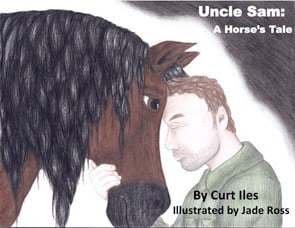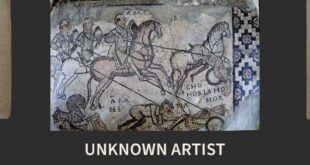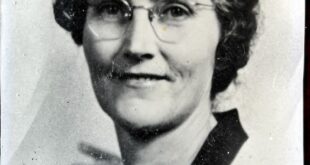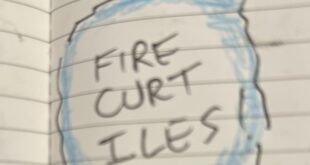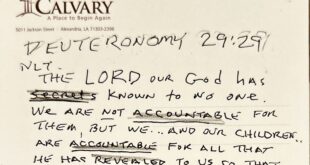Uncle Sam: A Horse’s Tale, our illustrated children’s book, will gallop again before Christmas 2025! Stay tuned at www.creekbank.net and Facebook for updates. Although Uncle Sam is a fictional work, it mentions actual place names and events from the colorful and overlooked history of our Louisiana Pineywoods, Stay tuned for updates.
Read More »Grades 3-4-5 Student Lesson Units for “Uncle Sam: A Horse’s Tale” by Curt Iles
Lesson Guides for Grades 3-4-5 Uncle Sam: A Horse’s Tale by Curt Iles Uncle Sam is available as an Amazon paperback, Kindle e-book, and Audible audiobook. To learn more about the story behind Uncle Sam, visit xxxxx Uncle Sam is the story of a grizzled Calvary soldier freeing his horse at the end of the 1941 La. Manuevers. Uncle …
Read More »‘Uncle Sam’, our new Louisiana children’s book. A companion to ‘A Spent Bullet’
“Children are enjoying the book nearly as much as the adults.” The recent release of our new children’s book, Uncle Sam: A Horse’s Tale, has been a great experience. This early reader tells the story of Sam, a US Cavalry horse who journeys to Louisiana in 1941. Sam and several of his friends are set free and …
Read More »‘Uncle Sam: A Horse’s Tale’ A Real Louisiana story
Scroll down for links on website template survey Please peruse the back cover of my upcoming childrens’ book, Uncle Sam. Uncle Sam, a cavalry horse, travels to Louisiana in the months before America enters World War II. Sam and his best friend, Sergeant Ed, are thrust into the middle of the Louisiana Army Maneuvers. This series of mock battles pits …
Read More »Eliza Iles in Africa
The following fascinating article is from a Beaumont Daily Journal article in November 1920. It features a letter from the Belgian Congo, Africa written by my great-grandfather’s sister, Eliza Iles: Headline: Miss Eliza Iles writes of trip to Congo, Africa Miss Eliza Iles, who was deaconess for the First Methodist church in this city for three years and is now …
Read More »All Trails Lead to “Uncle Sam: A Horse’s Tale. Sam Rides Again!
Uncle Sam: A Horse’s Tale Rides Again! Order your Christmas copies of Uncle Sam at Amazon. Read the entire book at https://www.creekbank.net/uncle-sam-2/ The experts say, “Don’t leak your book or give access to readers. They’ll read it for free and will skip buying it.” What do they know? Let’s prove the experts wrong. I’m putting all 38 …
Read More »A War Fighter Named General Abram
A War Fighter named General Abram: Right out of Army Ranger/Navy seal doctrine. It’s an overlooked passage in Genesis 14 when Abram/Abraham takes a rapid deployment strike team deep into enemy territory to rescue his nephew Lot. It’s right out or Army Ranger/Navy Seal doctrine. Here’s the brief passage, followed by Commentary from Uncle Chat: Genesis 14: NLT/ESV …
Read More »Rita McGuffee Terry: A Memorable Woman
We called her “Ma” and she was the rock solid center of the Terry Clan. Rita McGuffee Terry was my wife DeDe’s paternal grandmother. She lived in the home of DeDe’s parents, her son Herbert and daughter-in-law Juanita Terry for over a half century. DeDe and Ma shared a bed for all of her growing up years. Today, …
Read More »Pondering
Thoughts on Pondering We all need places to ponder. Somewhere to slow and think carefully in silence. Our own red rocker on the dogtrot porch. We need times to”Mull it over”, a term that harkens back to its meaning of stirring the pot. Reflecting. Meditating. Praying. The Old House porch in Dry Creek is a perfect place to ponder. Perfect …
Read More »“Fire Curt Iles”
February 10, 2026 ”Fire Curt Iles” A favorite story in 1991, I served as principal at my home school, East Beauregard High School. One of my many bright ideas was placing a suggestion box in the lobby. School opened with a fine open house night. As the auditorium cleared, Assistant Principal Tim Cooley and I were shutting …
Read More »Porch Pirates
Porch Pirates February 10, 2026 I saw them, but they didn’t see me. I was looking out the front window when they marched into view on my street. A homeless couple was struggling along with their heavy loads. He was pulling a red wagon stacked high with items. The woman behind him was pushing …
Read More »The Big Rocker at Dry Creek Camp
2026 The Big Rocker at Dry Creek Camp A Love of the Land The Rocker at Dry Creek Camp “Do you think now that rocker is worth $1500?” “No, it’s worth more like $15,000.” It was a conversation I’ll always remember. Framed with a lesson I will not forget. My special friend Karan Robinson shoved …
Read More »Tuesday, February 10
Thoughts for Tuesday, February 10 Memory Verse for the week: “The LORD our God has secrets . . .” Face it: there are many things we will not know nor understand. That’s where faith comes in. I choose to believe. There’s always more at The Creek. Periodic blog posts at www.creekbank.net
Read More »Riding Shotgun
Keep ‘er on True North!y Riding Shotgun I’m listening to “Shotgun” by The Band of Heathens. The refrain is “Riding Shotgun through . . .” I immediately thought of Africa and my son-in-the-Lord, Joseph Anyovi. It’s amazing how many passengers can be packed into an African Matatu (Taxi Bus) or my Toyota Landcruiser going to a Northern Uganda …
Read More » Creekbank Stories Curt Iles, Storyteller
Creekbank Stories Curt Iles, Storyteller
